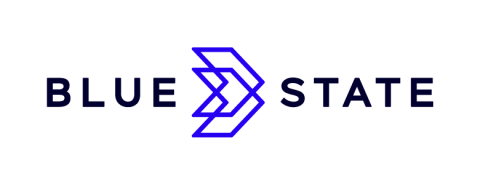
UNICEF
UNICEF needed a digital platform that would allow it to deliver engaging, compelling content to online supporters, and Acquia made it happen.

increase in users YoY
unique pageviews
The Client
UNICEF is the United Nations Children’s Fund, working in 190 countries and territories and in the world’s toughest places to reach the children and young people in greatest need – and to protect the rights of every child, everywhere.
One of the world’s largest providers of vaccines, UNICEF supports child health and nutrition, safe water and sanitation, quality education and skill-building, HIV prevention and treatment for mothers and babies, and the protection of children and adolescents from violence and exploitation. Before, during and after humanitarian emergencies, UNICEF is on the ground, bringing life-saving help and hope to children and families.
The Situation
UNICEF wanted to create a digital platform that was well-aligned with its strategic and operational needs. But with more than 15,000 UNICEF staff members working at various country and regional offices, national committees, a research center and other locations, the organization’s size and complexity proved challenging.
The Challenge
UNICEF recognized that the pace of digital adoption around the globe, particularly with mobile devices and social media, left its existing web properties and practices lagging. The organization was locked into restrictive, inefficient technology and was not providing engaging content to online supporters. This led to a fragmented presence, as some country offices started setting up competing platforms in their regions.
Overall, UNICEF prides itself on being quick to respond, innovative, collaborative and nimble. But its digital operation was not living up to that standard. The organization needed to modernize the way it created and syndicated content, updating UNICEF’s content strategy and governance across the organization and connecting internal offices as well as external partners.
Ultimately, UNICEF needed a fit-for-purpose digital ecosystem that corresponded to its decentralized organizational culture — one that maintained centralized governance for a strong and cohesive brand and storytelling while simultaneously offering the flexibility necessary for different offices to work their best and establish their own online presence.
The Solution
UNICEF selected Blue State as its partner to develop a plan and build consensus among diverse stakeholders. Together, the teams embarked on a digital transformation process that would:
- Be driven by a modern and efficient web content management system
- Facilitate UNICEF’s advocacy and storytelling to advance the needs of children
- Facilitate engagement with and among the organization’s target audiences
- Facilitate sharing UNICEF’s knowledge and data with the world
- Be optimized for mobile and social media
- Be accessibility-compliant
- Allow for decentralized publishing for headquarters and country offices to respond and share information more efficiently and quickly
- Allow the rapid creation of campaign modules that offices could use and customize
- Be flexible and light enough to be continually adjusted and enhanced, to stay nimble and relevant with new trends and technologies
Blue State’s web strategy enabled UNICEF to engage global audiences in its work through a cohesive, uncluttered experience that balanced trusted resources, stories and actions by giving worldwide staff the tools to nimbly publish, govern and iterate.
Collaboration between UNICEF and Acquia to stand up the platform kicked off with an architecture workshop, governance workshop and launch readiness planning. The partnership continues to the present day. The minimally viable product (MVP) — a brand new homepage and first layer of UNICEF.org using the new visual and UX approach — was launched and served from the new platform in 2017.
Once the MVP was in place, UNICEF began to converge and consolidate more than 175 sites onto the platform. UNICEF has also expanded the platform, implementing the range of advanced features and capabilities Blue State defined in the strategy, including integrations with social media platforms, Salesforce CRM and UNICEF's internal apps.
In addition, Blue State conducted extensive research and analysis on UNICEF’s global fundraising operations and digital properties and modeled the potential for growth in key markets. They recommended UNICEF develop and implement a global giving platform and position content to maximize engagement and fundraising.
At the end of Q1 2021, UNICEF’s migration to the new platform was 100% completed, and the organization decommissioned its RedDot legacy platform. UNICEF staffers can now refocus resources on work to further the mission.
The Results
The global UNICEF.org web platform is now home to 124 regional and country office sites, as well as 19 thematic sites (such as UNICEF Careers, Innovation, Generation Unlimited), supporting content production by nearly 600 personnel in 64 languages.
The complete overhaul of UNICEF.org led to unprecedented levels of exposure and audience engagement.
- As of July 2021, UNICEF has had more than 125 million digital supporters in more than 155 countries, more than double the original goal.
- In 2020, there were more than 107 million users – a 161% increase from the year before – and 156 million unique pageviews. 2021 continues on an upward trajectory, with 17 million unique page views in July 2021 — a 64% increase from July 2020
- In 2020, UNICEF’s pages appeared in Google Search results over 1.7 billion times, an increase of 149% from 2019. Global crisis pages rank high in organic Google searches, sometimes ahead of major news outlets.
- In Q1 2021, UNICEF was third among top domains for all Facebook News Feed content views, including the third and 14th most-viewed pages
